Postgraduate in Exotic Animals
Obtain your credential - PgCert. Exotic. ifevet
Postgraduate in Exotic Animals
Obtain your credential - PgCert. Exotic. ifevet
Start date
6th September 2025
Timetable
Saturday from 9:00 to 18:30 Sunday from 9:00 to 14:30
ECTS Credits
30 ECTS credits
Number of modules
20 modules
Modality
Streaming
Number of students
36 students
Start date
6th September 2025
Timetable
Saturday, 9 to 18:30 Sunday, 9 to 14:30
ECTS Credits
30 ECTS credits
Modules
20 modules
Modality
Streaming
Number of students
36 students
- Description
- Speakers
- Programme
- Pricing
Certification obtained
After passing the postgraduate university training, you will be able to obtain the following credentials to use in your CV:
• International Credential: PgCert. Exotic ifevet
• Certification obtained: Postgraduate Certificate in Exotic Animal (UK)
Course Objective
The aim of this course is to build on the principles acquired at an undergraduate level to give delegates a comprehensive introduction to companion exotic, native wildlife, and zoological practice. This course will allow delegates to further develop their awareness and understanding of the veterinary surgeon’s role in the management, health and welfare of captive and free-living exotic and wild animals.
Structure and benefits of the postgraduate program
This certificate is delivered over 20 modules, covering subjects such as anatomy, physiology, natural history, husbandry, examination, health investigation, therapeutics, surgery, and preventative health care. Examples of the species covered in this certificate include:
- Domestic and zoological birds
- Domestic and zoological reptiles
- Domestic and zoological small mammals
- Freshwater and marine fish
- Amphibians
- Invertebrates
- Zoological and commercial aquarium species
- Native wildlife
Delegates will receive bespoke, contemporary and evidence-based training material, that helps foster a self-directed and life-long approach to learning. Live teaching sessions and discussion forums allow delegates the opportunity to take a deeper dive into each module and experience the benefits of case-based learning under the guidance of industry experts.
Upon completion of the certificate, delegates will have gained a qualification that demonstrates a uniquely broad understanding of the considerations necessary to maintain health and manage disease in non-traditional species. Furthermore, delegates will have developed skills that will allow them to continue their journey in personal and professional development to confidently approach unfamiliar scenarios and novel conditions in non-traditional species.
Target Audience
This certificate is aimed towards general practitioners looking to progress their understanding and capabilities in exotic and zoological practice. It would also suit veterinary surgeons who are preparing to further their careers in companion exotic, wildlife, or zoological & aquarium medicine through future internship or residency training.
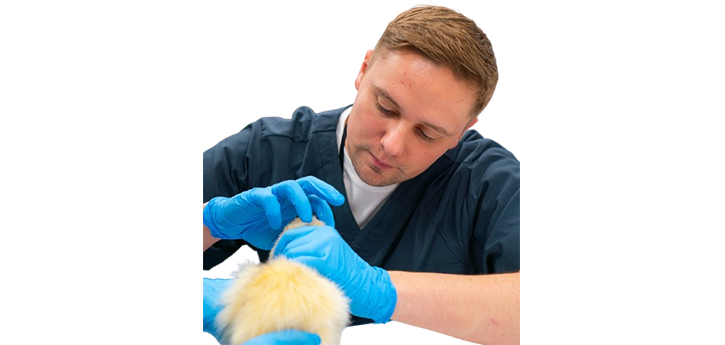
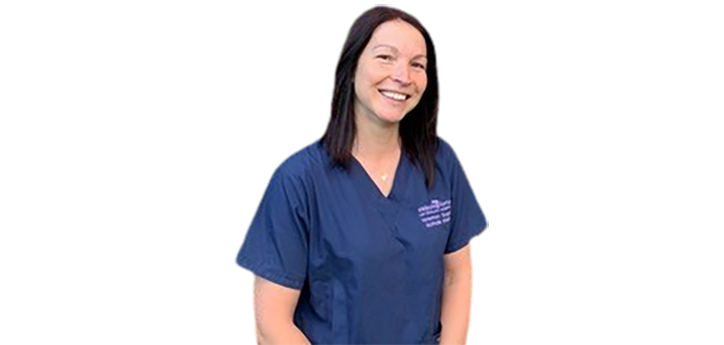
Nathalie Wissink
Lic.Vet CertAVP(ZM) DipZooMed(Reptilian) RCVS Recognised Specialist in Zoo and Wildlife Medicine MRCVS
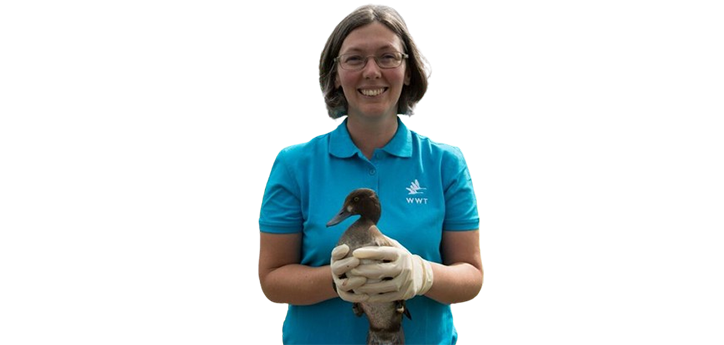
Michelle O’Brien
BVetMed CertZooMed DipECZM(ZHM) MRCVS RCVS Recognised Specialist in Zoo and Wildlife Medicine. EBVS European Veterinary Specialist in Zoo Health Management
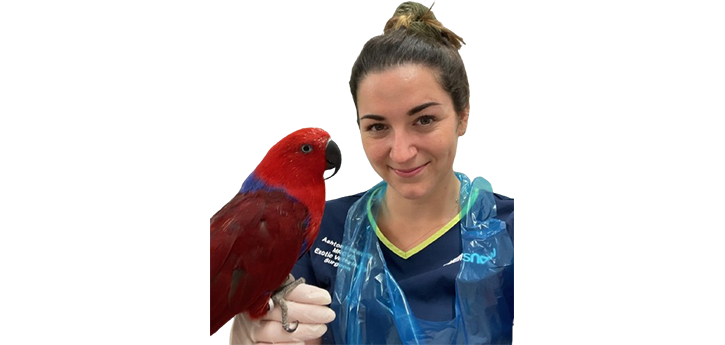

dominic byron-chance
BVetMed, DZooMed (Mammalian) MRCVS. RCVS Recognised Specialist in Zoo and Wildlife Medicine
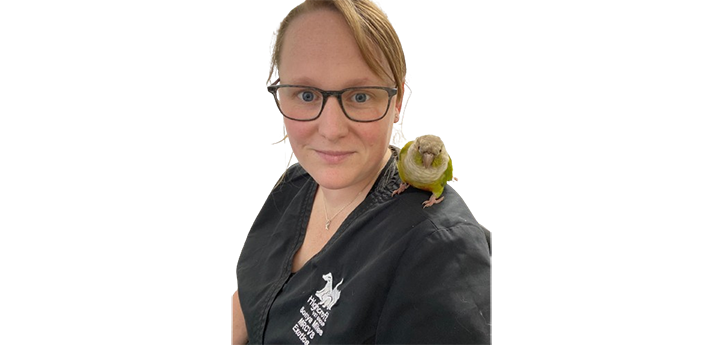
Sonya Miles
BVSc CertAVP(ZM), CertAqV, MRCVS RCVS Recognised Advanced Practitioner in Zoological Medicine WAVMA Certified Aquatic Species Veterinarian Exotic Species Veterinary Surgeon
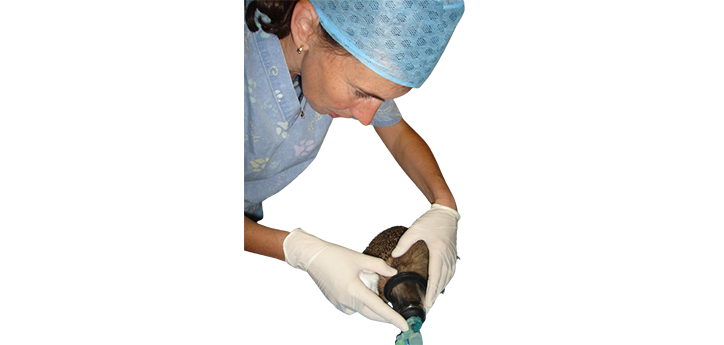
Elizabeth Mullineaux
BVM&S, DVM&S, CertSHP, FRCVS RCVS Recognised Specialist in Wildlife Medicine (Mammalian)

Tariq Abou-Zahr
BVSc CertAVP(ZooMed) DipECZM(Avian) MRCVS EBVS® and RCVS Recognised Veterinary Specialist in Zoological Medicine (Avian Medicine & Surgery)
Date: 6th September 2025
Modality: Streaming
Competencies and objectives:
This module introduces important principles and concepts in exotic animal practice. By the end of this module, candidates should be able to demonstrate:
Module Summary:
- An awareness of elements of companion exotic animal practice management
- An understanding of the principles of history taking and physical examination in companion exotic species
- An ability to describe and interpret relevant topics from current legislation and regulations, and demonstrate an understanding of how they influence companion exotic animal practice
- An understanding of the different classifications of veterinary medicines and how they impact companion exotic animal practice
- An understanding of the principles of therapeutics and drug delivery in companion exotic species
- An understanding of how to properly store, prescribe, dispense and label medications
- An understanding of the principles of Cascade drug use and drug compounding
- An ability to recognise food producing species that may be encountered in companion exotic animal practice, and demonstrate an understanding of medicine use in these species, including maximum residue limits, prohibited substances, and drug withdrawal periods
- An awareness of health and safety considerations in exotic animal practice (including zoonotic diseases and PPE)
• An understanding of the identification and reporting of notifiable diseases in companion exotic species
Speaker: Coming soon
Date: 6th September 2025
Modality: Streaming
Competencies and objectives:
This module gives an overview of important principles and concepts of exotic clinical and anatomic pathology. By the end of this module, candidates should be able to demonstrate:
Module Summary:
- An understanding of key anatomic and physiologic features in different taxa, and their relevance in companion exotic clinical practice
- An understanding of the indications, techniques and collection of common diagnostic samples used in anatomic and clinical pathology in companion exotic species
- An understanding of how to process diagnostic samples for internal and external analysis, and understand the features and indications for common stains used in exotic animal cytology and histology
- An understanding of the interpretation of normal and abnormal haematology, biochemistry, and other common clinical and anatomic pathology samples in companion exotic species
- An understanding of the principles and important considerations of necropsy in companion exotics (including egg necropsy)
Speaker: Coming soon
Date: 7th September 2025
Modality: Streaming
Competencies and objectives:
This module gives an overview of important principles and concepts of exotic emergency and critical care. By the end of this module, candidates should be able to demonstrate:
Module Summary:
- An understanding of the principles of triage and stabilisation in companion exotic species
- An understanding of the pathophysiology and management of different types of shock (e.g., hypovolaemic, cardiogenic, obstructive, distributive, metabolic, hypoxemic) in companion exotic species
- An understanding of the principles of temperature monitoring and thermal support in companion exotic species
- An understanding of the principles of oxygen therapy, airway and respiratory support in companion exotic species
- An understanding of the principles of blood pressure monitoring and support in companion exotic species
- An understanding of options for providing fluid therapy, and develop a fluid therapy plan for different taxa
- An understanding of the indications for and principles of blood transfusions in companion exotic species
- An understanding of options for providing nutritional support, and develop a nutritional plan for different taxa
- An understanding of an understanding of important clinical techniques in exotics emergency and critical care
- An understanding of the principles of cardiopulmonary resuscitation and post-arrest care in companion exotic species
- An understanding of different techniques for humane euthanasia in different taxa
Speaker: Coming soon
Date: 18-19th October 2025
Modality: Streaming
Competencies and objectives:
This module gives an overview of key principles of husbandry, examination, clinical approach, and internal medicine of captive birds commonly kept as non-traditional companion animals or in aviculture that are commonly encountered in general practice, including psittacines, passerines and columbiform birds. By the end of this module, candidates should be able to demonstrate:
Module Summary:
- An understanding of the husbandry, nutrition, and captive management of psittacines, passerines, columbiform birds, raptors, corvids, and backyard poultry & waterfowl
- An understanding of the principles of transport, restraint and physical examination in these species
- An understanding of the principles of physical examination, including specific examination techniques such as neurological examination and ophthalmic assessment in these species
- An understanding of the principles of sedation, anaesthesia, and the recognition & management of pain in these species
- An understanding of the principles of diagnostic imaging in these species
- An understanding of the approach and management of key diseases relating to specific or general body systems in individual animals
- An understanding of the principles of flock health management, preventative medicine, prophylaxis and immunisation in these species
Speaker: Tariq Abou-Zahr
Date: 18-19th October 2025
Modality: Streaming
Competencies and objectives:
This module gives an overview of key principles of husbandry, examination, clinical approach, and internal medicine of captive birds commonly kept as non-traditional companion animals or in aviculture that are commonly encountered in general practice, including raptors and corvids. By the end of this module, candidates should be able to demonstrate:
Module Summary:
- An understanding of the husbandry, nutrition, and captive management of psittacines, passerines, columbiform birds, raptors, corvids, and backyard poultry & waterfowl
- An understanding of the principles of transport, restraint and physical examination in these species
- An understanding of the principles of physical examination, including specific examination techniques such as neurological examination and ophthalmic assessment in these species
- An understanding of the principles of sedation, anaesthesia, and the recognition & management of pain in these species
- An understanding of the principles of diagnostic imaging in these species
- An understanding of the approach and management of key diseases relating to specific or general body systems in individual animals
- An understanding of the principles of flock health management, preventative medicine, prophylaxis and immunisation in these species
Speaker: Tariq Abou-Zahr
Date: 18-19th October 2025
Modality: Streaming
Competencies and objectives:
This module gives an overview of key principles of husbandry, examination, clinical approach, and internal medicine of captive birds commonly kept as non-traditional companion animals or in aviculture that are commonly encountered in general practice, including backyard poultry and waterfowl. By the end of this module, candidates should be able to demonstrate:
Module Summary:
- An understanding of the husbandry, nutrition, and captive management of psittacines, passerines, columbiform birds, raptors, corvids, and backyard poultry & waterfowl
- An understanding of the principles of transport, restraint and physical examination in these species
- An understanding of the principles of physical examination, including specific examination techniques such as neurological examination and ophthalmic assessment in these species
- An understanding of the principles of sedation, anaesthesia, and the recognition & management of pain in these species
- An understanding of the principles of diagnostic imaging in these species
- An understanding of the approach and management of key diseases relating to specific or general body systems in individual animals
- An understanding of the principles of flock health management, preventative medicine, prophylaxis and immunisation in these species
Speaker: Tariq Abou-Zahr
Date: 15-16th November 2025
Modality: Streaming
Competencies and objectives:
This module gives an overview of husbandry, examination, clinical approach, and internal medicine of captive snake species commonly kept as non-traditional companion animals or in herpetoculture that are commonly encountered in general practice. By the end of this module, candidates should be able to demonstrate:
Module Summary:
- An understanding of the husbandry, nutrition, and captive management of common species of snake, lizard and chelonian
- An understanding of the principles of transport, restraint and physical examination in these species
- An understanding of the principles of physical examination, including specific examination techniques such as neurological examination and ophthalmic assessment in these species
- An understanding of the principles of sedation, anaesthesia, and the recognition & management of pain in these species
- An understanding of the principles of diagnostic imaging in these species
- An understanding of the approach and management of key diseases relating to specific or general body systems in individual animals
- An understanding of the principles of group health management, preventative medicine, prophylaxis and immunisation in these species
Speaker: Nathalie Wissink
Date: 15-16th November 2025
Modality: Streaming
Competencies and objectives:
This module gives an overview of husbandry, examination, clinical approach, and internal medicine of captive lizard species commonly kept as non-traditional companion animals or in herpetoculture that are commonly encountered in general practice. By the end of this module, candidates should be able to demonstrate:
Module Summary:
- An understanding of the husbandry, nutrition, and captive management of common species of snake, lizard and chelonian
- An understanding of the principles of transport, restraint and physical examination in these species
- An understanding of the principles of physical examination, including specific examination techniques such as neurological examination and ophthalmic assessment in these species
- An understanding of the principles of sedation, anaesthesia, and the recognition & management of pain in these species
- An understanding of the principles of diagnostic imaging in these species
- An understanding of the approach and management of key diseases relating to specific or general body systems in individual animals
- An understanding of the principles of group health management, preventative medicine, prophylaxis and immunisation in these species
Speaker: Nathalie Wissink
Date: 15-16th November 2025
Modality: Streaming
Competencies and objectives:
This module gives an overview of husbandry, examination, clinical approach, and internal medicine of captive chelonians commonly kept as non-traditional companion animals or in herpetoculture that are commonly encountered in general practice. By the end of this module, candidates should be able to demonstrate:
Module Summary:
- An understanding of the husbandry, nutrition, and captive management of common species of snake, lizard and chelonian
- An understanding of the principles of transport, restraint and physical examination in these species
- An understanding of the principles of physical examination, including specific examination techniques such as neurological examination and ophthalmic assessment in these species
- An understanding of the principles of sedation, anaesthesia, and the recognition & management of pain in these species
- An understanding of the principles of diagnostic imaging in these species
- An understanding of the approach and management of key diseases relating to specific or general body systems in individual animals
- An understanding of the principles of group health management, preventative medicine, prophylaxis and immunisation in these species
Speaker: Nathalie Wissink
Date: 13-14th December 2025
Modality: Streaming
Competencies and objectives:
This module gives an overview of husbandry, examination, clinical approach, and internal medicine of rabbits, guinea pigs and chinchillas. By the end of this module, candidates should be able to demonstrate:
Module Summary:
- An understanding of the husbandry, nutrition, and captive management of rabbits, guinea pigs, chinchillas, rats, mice, hamsters, Mongolian gerbils, degus, sugar gliders, African pygmy hedgehogs, and ferrets
- An understanding of the principles of transport, restraint and physical examination in these species
- An understanding of the principles of physical examination, including specific examination techniques such as neurological examination and ophthalmic assessment in these species
- An understanding of the principles of sedation, anaesthesia, and the recognition & management of pain in these species
- An understanding of the principles of diagnostic imaging in these species
- An understanding of the approach and management of key diseases relating to specific or general body systems in individual animals
- An understanding of the principles of group health management, preventative medicine, prophylaxis and immunisation in these species
Speaker: Coming soon
Date: 13-14th December 2025
Modality: Streaming
Competencies and objectives:
This module gives an overview of husbandry, examination, clinical approach, and internal medicine of captive small mammals commonly kept as non-traditional companion animals that are commonly encountered in general practice, including rats, mice, hamsters, Mongolian gerbils, degus, sugar gliders, and African pygmy hedgehogs. By the end of this module, candidates should be able to demonstrate:
Module Summary:
- An understanding of the husbandry, nutrition, and captive management of rabbits, guinea pigs, chinchillas, rats, mice, hamsters, Mongolian gerbils, degus, sugar gliders, African pygmy hedgehogs, and ferrets
- An understanding of the principles of transport, restraint and physical examination in these species
- An understanding of the principles of physical examination, including specific examination techniques such as neurological examination and ophthalmic assessment in these species
- An understanding of the principles of sedation, anaesthesia, and the recognition & management of pain in these species
- An understanding of the principles of diagnostic imaging in these species
- An understanding of the approach and management of key diseases relating to specific or general body systems in individual animals
- An understanding of the principles of group health management, preventative medicine, prophylaxis and immunisation in these species
Speaker: Coming soon
Date: 13-14th December 2025
Modality: Streaming
Competencies and objectives:
This module gives an overview of husbandry, examination, clinical approach, and internal medicine of ferrets. By the end of this module, candidates should be able to demonstrate:
Module Summary:
- An understanding of the husbandry, nutrition, and captive management of rabbits, guinea pigs, chinchillas, rats, mice, hamsters, Mongolian gerbils, degus, sugar gliders, African pygmy hedgehogs, and ferrets
- An understanding of the principles of transport, restraint and physical examination in these species
- An understanding of the principles of physical examination, including specific examination techniques such as neurological examination and ophthalmic assessment in these species
- An understanding of the principles of sedation, anaesthesia, and the recognition & management of pain in these species
- An understanding of the principles of diagnostic imaging in these species
- An understanding of the approach and management of key diseases relating to specific or general body systems in individual animals
- An understanding of the principles of group health management, preventative medicine, prophylaxis and immunisation in these species
Speaker: Coming soon
Date: 10-11th January 2026
Modality: Streaming
Competencies and objectives:
This module gives an overview of husbandry, examination, clinical approach, internal medicine of koi and other ornamental fish (marine and freshwater), marine invertebrates and coral, and amphibians. By the end of this module, candidates should be able to demonstrate:
Module Summary:
- An understanding of the husbandry, nutrition, and captive management of koi and other ornamental fish (marine and freshwater), and amphibians
- An understanding of the principles of transport, restraint and physical examination in these species
- An understanding of the principles of physical examination, including specific examination techniques such as neurological examination and ophthalmic assessment in these species
- An understanding of the principles of sedation, anaesthesia, and the recognition & management of pain in these species
- An understanding of the principles of diagnostic imaging in these species
- An understanding of the approach and management of key diseases relating to specific or general body systems in individual animals
- An understanding of the principles of group health management, preventative medicine, prophylaxis and immunisation in these species
Speaker: Coming soon
Date: 10-11th January 2026
Modality: Streaming
Competencies and objectives:
This module gives an overview of husbandry, examination, clinical approach, and internal medicine of honeybees and other invertebrate species commonly kept in captivity. By the end of this module, candidates should be able to demonstrate:
Module Summary:
- An understanding of the husbandry, nutrition, and captive management of honeybees and other invertebrate species
- An understanding of the principles of transport, restraint and physical examination in these species
- An understanding of the principles of physical examination, including specific examination techniques such as neurological examination and ophthalmic assessment in these species
- An understanding of the principles of sedation, anaesthesia, and the recognition & management of pain in these species
- An understanding of the principles of diagnostic imaging in these species
- An understanding of the approach and management of key diseases relating to specific or general body systems in individual animals
- An understanding of the principles of group health management, preventative medicine, prophylaxis and immunisation in these species
Speaker: Michelle O’Brien
Date: 10-11th January 2026
Modality: Streaming
Competencies and objectives:
This module gives an overview of husbandry, examination, clinical approach, and internal medicine of captive mammals less commonly kept as non-traditional companion animals, including common marmosets, striped skunks, raccoons, coatis, kinkajous, prairie dogs, meerkats, Virginia opossums, wallabies, servals and Savannah cats. By the end of this module, candidates should be able to demonstrate:
Module Summary:
- An understanding of the husbandry, nutrition, and captive management of rabbits, guinea pigs, chinchillas, rats, mice, hamsters, Mongolian gerbils, degus, sugar gliders, African pygmy hedgehogs, and ferrets
- An understanding of the principles of transport, restraint and physical examination in these species
- An understanding of the principles of physical examination, including specific examination techniques such as neurological examination and ophthalmic assessment in these species
- An understanding of the principles of sedation, anaesthesia, and the recognition & management of pain in these species
- An understanding of the principles of diagnostic imaging in these species
- An understanding of the approach and management of key diseases relating to specific or general body systems in individual animals
- An understanding of the principles of group health management, preventative medicine, prophylaxis and immunisation in these species
Speaker: Coming soon
Date: 14-15th February 2026
Modality: Streaming
Competencies and objectives:
This module gives an overview of management and veterinary care of captive zoological species, and introduces principles of conservation, captive management, examination, clinical approach, and veterinary care of common conditions in important captive zoological species, including zoological avian species (e.g., penguins, ratites, rhamphastids, flamingos), zoological herptile species (e.g., crocodilians, marine turtles, Komodo dragons, monitors, Gila monsters, beaded lizards etc), primates (prosimians, monkeys, gibbons and great apes), carnivores, artiodactyls, perissodactyls, elephants, marsupials, marine mammals, and elasmobranchs. By the end of this module, candidates should be able to demonstrate:
Module Summary:
- An understanding of the veterinary surgeon’s role in zoological species conservation
- An awareness of different zoological professional bodies (e.g., BIAZA, EAZA, EZA etc.
- An understanding of record keeping options in zoological medicine
- An ability to recognise food producing species that may be encountered in zoological collections, and understand medicine use (including maximum residue limits and prohibited drugs) in these species.
- An understanding of how to properly store, prescribe, dispense and label medications, including the principles of Cascade use and compounding, in key zoological species
- An understanding of the identification and reporting of notifiable diseases in zoological species
- Describe the principles of therapeutics and drug delivery in zoological species
- An understanding of the role of veterinary surgeons in health and safety in zoos, including zoonotic diseases, reverse zoonoses, and working with dangerous species
- An understanding of the principles of history taking and physical examination in companion exotic species
- An understanding of the principles of transport, restraint and physical examination in key zoological species
- An understanding of the principles of sedation, anaesthesia, analgesia in key zoological species
- Develop escape protocols for key zoological species
- An understanding of the principles of diagnostic imaging in key zoological species
- An understanding of the approach and management of common medical conditions in individual zoological animals
- An understanding of the principles of group health management, preventative medicine, prophylaxis, immunisation and contraception in key zoological species
- An understanding of the principles of decision making, geriatric animal care, end-of-life planning in zoological collections, and euthanasia techniques
- An understanding of the principles of quarantine, disease surveillance and necropsy in zoological collections
Speaker: Coming soon
Date: 14-15th February 2026
Modality: Streaming
Competencies and objectives:
This module gives an overview of principles in conservation, rehabilitation and veterinary management of wildlife casualties in free-living British native species, including red fox, badger, hedgehog, bats, deer, small mustelids (weasels, stoat, polecat, pine martens), otter, Scottish wild cats, squirrels, wild lagomorphs, seals, cetacians, rodents, wild birds, reptiles and amphibians. By the end of this module, candidates should be able to demonstrate:
Module Summary:
- An understanding of important principles in native wildlife practice
- An understanding of concepts in decision-making, including early euthanasia, with wildlife casualties
- An understanding of principles in conservation, rehabilitation and release management of wildlife casualties, including the management of invasive alien species
- An ability to describe and interpret relevant topics from current legislation and regulations, and demonstrate an understanding of how they influence native wildlife rehabilitation centres and the practice of native wildlife medicine
- An understanding of the identification and reporting of notifiable diseases in native wild species
- Describe the principles of therapeutics and drug delivery in native wild species
- An understanding of the role of veterinary surgeons in health and safety in native wildlife medicine, including zoonotic diseases and working with dangerous species
- An understanding of the husbandry, nutrition, and captive management (temporary or permanent) of native wild species
- An understanding of the principles of transport, restraint and physical examination in native wild species
- An understanding of the principles of sedation, anaesthesia, and analgesia in native wild species
- An understanding of the principles of diagnostic imaging in native wild species
- An understanding of the approach and management of common medical conditions in native wild species
- An understanding of the principles of group health management, preventative medicine, prophylaxis, immunisation and contraception in captive native wild species
- An understanding of principles in disaster medicine, e.g., oil spills, cetacean stranding, forest fire
- An understanding of euthanasia techniques in native wild species
- An understanding of the principles of quarantine, disease surveillance and necropsy in native wild species
Speaker: Coming soon
Date: 14-15th March 2026
Modality: Streaming
Competencies and objectives:
This module introduces important principles and concepts in exotic animal surgery. By the end of this module, candidates should be able to:
Module Summary:
- Understand general principles of exotic animal surgery
- Select instruments and equipment useful in exotic animal surgery
- Understand principles of theatre management, patient preparation, and patient positioning
- Understand common surgical approaches used in exotic animal surgery
- Understand the principles of suture material and needle selection, and demonstrate an understanding of the indication and techniques for different surgical and non-surgical wound closure in exotic animals
- Understand the principles of wound management and bandaging in exotic animals
- Demonstrate an understanding of the principles of radiosurgery
- Demonstrate an understanding of the principles of endosurgery
- Demonstrate an understanding of the principles of magnification surgery
- Demonstrate an understanding of identichip placement (including conventional identichip placement locations in different taxa)
Speaker: Coming soon
Date: 14-15th March 2026
Modality: Streaming
Competencies and objectives:
This module explores key techniques in exotic animal soft tissue surgery. By the end of this module, candidates should be able to:
Module Summary:
- Demonstrate an understanding of the surgical approach to common soft tissue surgical and dental procedures in exotic animals, including:
- Avian – reproductive and cloacal surgery
- Avian – respiratory surgery
- Avian – ocular surgery
- Reptile – gastrointestinal surgery
- Reptile – reproductive and cloacal surgery
- Mammal – routine neutering techniques
- Mammal – abdominal surgery
- Mammal – thoracic surgery
- Mammal – ocular surgery
- Mammal – dentistry and facial abscess surgery
Speaker: Coming soon
Date: 14-15th March 2026
Modality: Streaming
Competencies and objectives:
This module explores key techniques in exotic animal orthopaedic surgery. By the end of this module, candidates should be able to:
Module Summary:
- Understand how to approach the orthopaedic patient
- Understand common fracture types
- Understand the surgical techniques used in internal fracture repair in exotic species
- Understand non-surgical techniques of fracture repair including external coaptation
- Understand the surgical techniques used in limb, digit, and tail amputations in exotic species
- Understand the principles of muscle, tendon and joint surgery
- Understand the principles and techniques of shell repair (chelonians)
- Understand the principles and techniques of beak correction and repair (avian)
Speaker: Coming soon
We offer you 2 payment methods:
· Interest-free payment in instalments
- Interest-free instalments
- Payment in full (BACS or Credit Card)
For details on interest-free instalment options, please refer to the information request section.
· Price (exam included): 8.900 €
*An additional fee of 80€ will be required for the issuance of the university degree
Terms and conditions of payment
The remaining fees must be paid by direct debit during the first 10 days of each month.
All payments must be completed before the end of the last training course.
Certification obtained
After passing the postgraduate university training, you will be able to obtain the following credentials to use in your CV:
• International Credential: PgCert. Exotic ifevet
• Certification obtained: Postgraduate Certificate in Exotic Animal (UK)
Course Objective
The aim of this course is to build on the principles acquired at an undergraduate level to give delegates a comprehensive introduction to companion exotic, native wildlife, and zoological practice. This course will allow delegates to further develop their awareness and understanding of the veterinary surgeon’s role in the management, health and welfare of captive and free-living exotic and wild animals.
Structure and benefits of the postgraduate program
This certificate is delivered over 20 modules, covering subjects such as anatomy, physiology, natural history, husbandry, examination, health investigation, therapeutics, surgery, and preventative health care. Examples of the species covered in this certificate include:
- Domestic and zoological birds
- Domestic and zoological reptiles
- Domestic and zoological small mammals
- Freshwater and marine fish
- Amphibians
- Invertebrates
- Zoological and commercial aquarium species
- Native wildlife
Delegates will receive bespoke, contemporary and evidence-based training material, that helps foster a self-directed and life-long approach to learning. Live teaching sessions and discussion forums allow delegates the opportunity to take a deeper dive into each module and experience the benefits of case-based learning under the guidance of industry experts.
Upon completion of the certificate, delegates will have gained a qualification that demonstrates a uniquely broad understanding of the considerations necessary to maintain health and manage disease in non-traditional species. Furthermore, delegates will have developed skills that will allow them to continue their journey in personal and professional development to confidently approach unfamiliar scenarios and novel conditions in non-traditional species.
Target Audience
This certificate is aimed towards general practitioners looking to progress their understanding and capabilities in exotic and zoological practice. It would also suit veterinary surgeons who are preparing to further their careers in companion exotic, wildlife, or zoological & aquarium medicine through future internship or residency training.


Nathalie Wissink
Lic.Vet CertAVP(ZM) DipZooMed(Reptilian) RCVS Recognised Specialist in Zoo and Wildlife Medicine MRCVS

Michelle O’Brien
BVetMed CertZooMed DipECZM(ZHM) MRCVS RCVS Recognised Specialist in Zoo and Wildlife Medicine. EBVS European Veterinary Specialist in Zoo Health Management


dominic byron-chance
BVetMed, DZooMed (Mammalian) MRCVS. RCVS Recognised Specialist in Zoo and Wildlife Medicine

Sonya Miles
BVSc CertAVP(ZM), CertAqV, MRCVS RCVS Recognised Advanced Practitioner in Zoological Medicine WAVMA Certified Aquatic Species Veterinarian Exotic Species Veterinary Surgeon

Elizabeth Mullineaux
BVM&S, DVM&S, CertSHP, FRCVS RCVS Recognised Specialist in Wildlife Medicine (Mammalian)

Tariq Abou-Zahr
BVSc CertAVP(ZooMed) DipECZM(Avian) MRCVS EBVS® and RCVS Recognised Veterinary Specialist in Zoological Medicine (Avian Medicine & Surgery)
Date: 6th September 2025
Modality: Streaming
Competencies and objectives:
This module introduces important principles and concepts in exotic animal practice. By the end of this module, candidates should be able to demonstrate:
Module Summary:
- An awareness of elements of companion exotic animal practice management
- An understanding of the principles of history taking and physical examination in companion exotic species
- An ability to describe and interpret relevant topics from current legislation and regulations, and demonstrate an understanding of how they influence companion exotic animal practice
- An understanding of the different classifications of veterinary medicines and how they impact companion exotic animal practice
- An understanding of the principles of therapeutics and drug delivery in companion exotic species
- An understanding of how to properly store, prescribe, dispense and label medications
- An understanding of the principles of Cascade drug use and drug compounding
- An ability to recognise food producing species that may be encountered in companion exotic animal practice, and demonstrate an understanding of medicine use in these species, including maximum residue limits, prohibited substances, and drug withdrawal periods
- An awareness of health and safety considerations in exotic animal practice (including zoonotic diseases and PPE)
• An understanding of the identification and reporting of notifiable diseases in companion exotic species
Speaker: Coming soon
Date: 6th September 2025
Modality: Streaming
Competencies and objectives:
This module gives an overview of important principles and concepts of exotic clinical and anatomic pathology. By the end of this module, candidates should be able to demonstrate:
Module Summary:
- An understanding of key anatomic and physiologic features in different taxa, and their relevance in companion exotic clinical practice
- An understanding of the indications, techniques and collection of common diagnostic samples used in anatomic and clinical pathology in companion exotic species
- An understanding of how to process diagnostic samples for internal and external analysis, and understand the features and indications for common stains used in exotic animal cytology and histology
- An understanding of the interpretation of normal and abnormal haematology, biochemistry, and other common clinical and anatomic pathology samples in companion exotic species
- An understanding of the principles and important considerations of necropsy in companion exotics (including egg necropsy)
Speaker: Coming soon
Date: 7th September 2025
Modality: Streaming
Competencies and objectives:
This module gives an overview of important principles and concepts of exotic emergency and critical care. By the end of this module, candidates should be able to demonstrate:
Module Summary:
- An understanding of the principles of triage and stabilisation in companion exotic species
- An understanding of the pathophysiology and management of different types of shock (e.g., hypovolaemic, cardiogenic, obstructive, distributive, metabolic, hypoxemic) in companion exotic species
- An understanding of the principles of temperature monitoring and thermal support in companion exotic species
- An understanding of the principles of oxygen therapy, airway and respiratory support in companion exotic species
- An understanding of the principles of blood pressure monitoring and support in companion exotic species
- An understanding of options for providing fluid therapy, and develop a fluid therapy plan for different taxa
- An understanding of the indications for and principles of blood transfusions in companion exotic species
- An understanding of options for providing nutritional support, and develop a nutritional plan for different taxa
- An understanding of an understanding of important clinical techniques in exotics emergency and critical care
- An understanding of the principles of cardiopulmonary resuscitation and post-arrest care in companion exotic species
- An understanding of different techniques for humane euthanasia in different taxa
Speaker: Coming soon
Date: 18-19th October 2025
Modality: Streaming
Competencies and objectives:
This module gives an overview of key principles of husbandry, examination, clinical approach, and internal medicine of captive birds commonly kept as non-traditional companion animals or in aviculture that are commonly encountered in general practice, including psittacines, passerines and columbiform birds. By the end of this module, candidates should be able to demonstrate:
Module Summary:
- An understanding of the husbandry, nutrition, and captive management of psittacines, passerines, columbiform birds, raptors, corvids, and backyard poultry & waterfowl
- An understanding of the principles of transport, restraint and physical examination in these species
- An understanding of the principles of physical examination, including specific examination techniques such as neurological examination and ophthalmic assessment in these species
- An understanding of the principles of sedation, anaesthesia, and the recognition & management of pain in these species
- An understanding of the principles of diagnostic imaging in these species
- An understanding of the approach and management of key diseases relating to specific or general body systems in individual animals
- An understanding of the principles of flock health management, preventative medicine, prophylaxis and immunisation in these species
Speaker: Tariq Abou-Zahr
Date: 18-19th October 2025
Modality: Streaming
Competencies and objectives:
This module gives an overview of key principles of husbandry, examination, clinical approach, and internal medicine of captive birds commonly kept as non-traditional companion animals or in aviculture that are commonly encountered in general practice, including raptors and corvids. By the end of this module, candidates should be able to demonstrate:
Module Summary:
- An understanding of the husbandry, nutrition, and captive management of psittacines, passerines, columbiform birds, raptors, corvids, and backyard poultry & waterfowl
- An understanding of the principles of transport, restraint and physical examination in these species
- An understanding of the principles of physical examination, including specific examination techniques such as neurological examination and ophthalmic assessment in these species
- An understanding of the principles of sedation, anaesthesia, and the recognition & management of pain in these species
- An understanding of the principles of diagnostic imaging in these species
- An understanding of the approach and management of key diseases relating to specific or general body systems in individual animals
- An understanding of the principles of flock health management, preventative medicine, prophylaxis and immunisation in these species
Speaker: Tariq Abou-Zahr
Date: 18-19th October 2025
Modality: Streaming
Competencies and objectives:
This module gives an overview of key principles of husbandry, examination, clinical approach, and internal medicine of captive birds commonly kept as non-traditional companion animals or in aviculture that are commonly encountered in general practice, including backyard poultry and waterfowl. By the end of this module, candidates should be able to demonstrate:
Module Summary:
- An understanding of the husbandry, nutrition, and captive management of psittacines, passerines, columbiform birds, raptors, corvids, and backyard poultry & waterfowl
- An understanding of the principles of transport, restraint and physical examination in these species
- An understanding of the principles of physical examination, including specific examination techniques such as neurological examination and ophthalmic assessment in these species
- An understanding of the principles of sedation, anaesthesia, and the recognition & management of pain in these species
- An understanding of the principles of diagnostic imaging in these species
- An understanding of the approach and management of key diseases relating to specific or general body systems in individual animals
- An understanding of the principles of flock health management, preventative medicine, prophylaxis and immunisation in these species
Speaker: Tariq Abou-Zahr
Date: 15-16th November 2025
Modality: Streaming
Competencies and objectives:
This module gives an overview of husbandry, examination, clinical approach, and internal medicine of captive snake species commonly kept as non-traditional companion animals or in herpetoculture that are commonly encountered in general practice. By the end of this module, candidates should be able to demonstrate:
Module Summary:
- An understanding of the husbandry, nutrition, and captive management of common species of snake, lizard and chelonian
- An understanding of the principles of transport, restraint and physical examination in these species
- An understanding of the principles of physical examination, including specific examination techniques such as neurological examination and ophthalmic assessment in these species
- An understanding of the principles of sedation, anaesthesia, and the recognition & management of pain in these species
- An understanding of the principles of diagnostic imaging in these species
- An understanding of the approach and management of key diseases relating to specific or general body systems in individual animals
- An understanding of the principles of group health management, preventative medicine, prophylaxis and immunisation in these species
Speaker: Nathalie Wissink
Date: 15-16th November 2025
Modality: Streaming
Competencies and objectives:
This module gives an overview of husbandry, examination, clinical approach, and internal medicine of captive lizard species commonly kept as non-traditional companion animals or in herpetoculture that are commonly encountered in general practice. By the end of this module, candidates should be able to demonstrate:
Module Summary:
- An understanding of the husbandry, nutrition, and captive management of common species of snake, lizard and chelonian
- An understanding of the principles of transport, restraint and physical examination in these species
- An understanding of the principles of physical examination, including specific examination techniques such as neurological examination and ophthalmic assessment in these species
- An understanding of the principles of sedation, anaesthesia, and the recognition & management of pain in these species
- An understanding of the principles of diagnostic imaging in these species
- An understanding of the approach and management of key diseases relating to specific or general body systems in individual animals
- An understanding of the principles of group health management, preventative medicine, prophylaxis and immunisation in these species
Speaker: Nathalie Wissink
Date: 15-16th November 2025
Modality: Streaming
Competencies and objectives:
This module gives an overview of husbandry, examination, clinical approach, and internal medicine of captive chelonians commonly kept as non-traditional companion animals or in herpetoculture that are commonly encountered in general practice. By the end of this module, candidates should be able to demonstrate:
Module Summary:
- An understanding of the husbandry, nutrition, and captive management of common species of snake, lizard and chelonian
- An understanding of the principles of transport, restraint and physical examination in these species
- An understanding of the principles of physical examination, including specific examination techniques such as neurological examination and ophthalmic assessment in these species
- An understanding of the principles of sedation, anaesthesia, and the recognition & management of pain in these species
- An understanding of the principles of diagnostic imaging in these species
- An understanding of the approach and management of key diseases relating to specific or general body systems in individual animals
- An understanding of the principles of group health management, preventative medicine, prophylaxis and immunisation in these species
Speaker: Nathalie Wissink
Date: 13-14th December 2025
Modality: Streaming
Competencies and objectives:
This module gives an overview of husbandry, examination, clinical approach, and internal medicine of rabbits, guinea pigs and chinchillas. By the end of this module, candidates should be able to demonstrate:
Module Summary:
- An understanding of the husbandry, nutrition, and captive management of rabbits, guinea pigs, chinchillas, rats, mice, hamsters, Mongolian gerbils, degus, sugar gliders, African pygmy hedgehogs, and ferrets
- An understanding of the principles of transport, restraint and physical examination in these species
- An understanding of the principles of physical examination, including specific examination techniques such as neurological examination and ophthalmic assessment in these species
- An understanding of the principles of sedation, anaesthesia, and the recognition & management of pain in these species
- An understanding of the principles of diagnostic imaging in these species
- An understanding of the approach and management of key diseases relating to specific or general body systems in individual animals
- An understanding of the principles of group health management, preventative medicine, prophylaxis and immunisation in these species
Speaker: Coming soon
Date: 13-14th December 2025
Modality: Streaming
Competencies and objectives:
This module gives an overview of husbandry, examination, clinical approach, and internal medicine of captive small mammals commonly kept as non-traditional companion animals that are commonly encountered in general practice, including rats, mice, hamsters, Mongolian gerbils, degus, sugar gliders, and African pygmy hedgehogs. By the end of this module, candidates should be able to demonstrate:
Module Summary:
- An understanding of the husbandry, nutrition, and captive management of rabbits, guinea pigs, chinchillas, rats, mice, hamsters, Mongolian gerbils, degus, sugar gliders, African pygmy hedgehogs, and ferrets
- An understanding of the principles of transport, restraint and physical examination in these species
- An understanding of the principles of physical examination, including specific examination techniques such as neurological examination and ophthalmic assessment in these species
- An understanding of the principles of sedation, anaesthesia, and the recognition & management of pain in these species
- An understanding of the principles of diagnostic imaging in these species
- An understanding of the approach and management of key diseases relating to specific or general body systems in individual animals
- An understanding of the principles of group health management, preventative medicine, prophylaxis and immunisation in these species
Speaker: Coming soon
Date: 13-14th December 2025
Modality: Streaming
Competencies and objectives:
This module gives an overview of husbandry, examination, clinical approach, and internal medicine of ferrets. By the end of this module, candidates should be able to demonstrate:
Module Summary:
- An understanding of the husbandry, nutrition, and captive management of rabbits, guinea pigs, chinchillas, rats, mice, hamsters, Mongolian gerbils, degus, sugar gliders, African pygmy hedgehogs, and ferrets
- An understanding of the principles of transport, restraint and physical examination in these species
- An understanding of the principles of physical examination, including specific examination techniques such as neurological examination and ophthalmic assessment in these species
- An understanding of the principles of sedation, anaesthesia, and the recognition & management of pain in these species
- An understanding of the principles of diagnostic imaging in these species
- An understanding of the approach and management of key diseases relating to specific or general body systems in individual animals
- An understanding of the principles of group health management, preventative medicine, prophylaxis and immunisation in these species
Speaker: Coming soon
Date: 10-11th January 2026
Modality: Streaming
Competencies and objectives:
This module gives an overview of husbandry, examination, clinical approach, internal medicine of koi and other ornamental fish (marine and freshwater), marine invertebrates and coral, and amphibians. By the end of this module, candidates should be able to demonstrate:
Module Summary:
- An understanding of the husbandry, nutrition, and captive management of koi and other ornamental fish (marine and freshwater), and amphibians
- An understanding of the principles of transport, restraint and physical examination in these species
- An understanding of the principles of physical examination, including specific examination techniques such as neurological examination and ophthalmic assessment in these species
- An understanding of the principles of sedation, anaesthesia, and the recognition & management of pain in these species
- An understanding of the principles of diagnostic imaging in these species
- An understanding of the approach and management of key diseases relating to specific or general body systems in individual animals
- An understanding of the principles of group health management, preventative medicine, prophylaxis and immunisation in these species
Speaker: Coming soon
Date: 10-11th January 2026
Modality: Streaming
Competencies and objectives:
This module gives an overview of husbandry, examination, clinical approach, and internal medicine of honeybees and other invertebrate species commonly kept in captivity. By the end of this module, candidates should be able to demonstrate:
Module Summary:
- An understanding of the husbandry, nutrition, and captive management of honeybees and other invertebrate species
- An understanding of the principles of transport, restraint and physical examination in these species
- An understanding of the principles of physical examination, including specific examination techniques such as neurological examination and ophthalmic assessment in these species
- An understanding of the principles of sedation, anaesthesia, and the recognition & management of pain in these species
- An understanding of the principles of diagnostic imaging in these species
- An understanding of the approach and management of key diseases relating to specific or general body systems in individual animals
- An understanding of the principles of group health management, preventative medicine, prophylaxis and immunisation in these species
Speaker: Michelle O’Brien
Date: 10-11th January 2026
Modality: Streaming
Competencies and objectives:
This module gives an overview of husbandry, examination, clinical approach, and internal medicine of captive mammals less commonly kept as non-traditional companion animals, including common marmosets, striped skunks, raccoons, coatis, kinkajous, prairie dogs, meerkats, Virginia opossums, wallabies, servals and Savannah cats. By the end of this module, candidates should be able to demonstrate:
Module Summary:
- An understanding of the husbandry, nutrition, and captive management of rabbits, guinea pigs, chinchillas, rats, mice, hamsters, Mongolian gerbils, degus, sugar gliders, African pygmy hedgehogs, and ferrets
- An understanding of the principles of transport, restraint and physical examination in these species
- An understanding of the principles of physical examination, including specific examination techniques such as neurological examination and ophthalmic assessment in these species
- An understanding of the principles of sedation, anaesthesia, and the recognition & management of pain in these species
- An understanding of the principles of diagnostic imaging in these species
- An understanding of the approach and management of key diseases relating to specific or general body systems in individual animals
- An understanding of the principles of group health management, preventative medicine, prophylaxis and immunisation in these species
Speaker: Coming soon
Date: 14-15th February 2026
Modality: Streaming
Competencies and objectives:
This module gives an overview of management and veterinary care of captive zoological species, and introduces principles of conservation, captive management, examination, clinical approach, and veterinary care of common conditions in important captive zoological species, including zoological avian species (e.g., penguins, ratites, rhamphastids, flamingos), zoological herptile species (e.g., crocodilians, marine turtles, Komodo dragons, monitors, Gila monsters, beaded lizards etc), primates (prosimians, monkeys, gibbons and great apes), carnivores, artiodactyls, perissodactyls, elephants, marsupials, marine mammals, and elasmobranchs. By the end of this module, candidates should be able to demonstrate:
Module Summary:
- An understanding of the veterinary surgeon’s role in zoological species conservation
- An awareness of different zoological professional bodies (e.g., BIAZA, EAZA, EZA etc.
- An understanding of record keeping options in zoological medicine
- An ability to recognise food producing species that may be encountered in zoological collections, and understand medicine use (including maximum residue limits and prohibited drugs) in these species.
- An understanding of how to properly store, prescribe, dispense and label medications, including the principles of Cascade use and compounding, in key zoological species
- An understanding of the identification and reporting of notifiable diseases in zoological species
- Describe the principles of therapeutics and drug delivery in zoological species
- An understanding of the role of veterinary surgeons in health and safety in zoos, including zoonotic diseases, reverse zoonoses, and working with dangerous species
- An understanding of the principles of history taking and physical examination in companion exotic species
- An understanding of the principles of transport, restraint and physical examination in key zoological species
- An understanding of the principles of sedation, anaesthesia, analgesia in key zoological species
- Develop escape protocols for key zoological species
- An understanding of the principles of diagnostic imaging in key zoological species
- An understanding of the approach and management of common medical conditions in individual zoological animals
- An understanding of the principles of group health management, preventative medicine, prophylaxis, immunisation and contraception in key zoological species
- An understanding of the principles of decision making, geriatric animal care, end-of-life planning in zoological collections, and euthanasia techniques
- An understanding of the principles of quarantine, disease surveillance and necropsy in zoological collections
Speaker: Coming soon
Date: 14-15th February 2026
Modality: Streaming
Competencies and objectives:
This module gives an overview of principles in conservation, rehabilitation and veterinary management of wildlife casualties in free-living British native species, including red fox, badger, hedgehog, bats, deer, small mustelids (weasels, stoat, polecat, pine martens), otter, Scottish wild cats, squirrels, wild lagomorphs, seals, cetacians, rodents, wild birds, reptiles and amphibians. By the end of this module, candidates should be able to demonstrate:
Module Summary:
- An understanding of important principles in native wildlife practice
- An understanding of concepts in decision-making, including early euthanasia, with wildlife casualties
- An understanding of principles in conservation, rehabilitation and release management of wildlife casualties, including the management of invasive alien species
- An ability to describe and interpret relevant topics from current legislation and regulations, and demonstrate an understanding of how they influence native wildlife rehabilitation centres and the practice of native wildlife medicine
- An understanding of the identification and reporting of notifiable diseases in native wild species
- Describe the principles of therapeutics and drug delivery in native wild species
- An understanding of the role of veterinary surgeons in health and safety in native wildlife medicine, including zoonotic diseases and working with dangerous species
- An understanding of the husbandry, nutrition, and captive management (temporary or permanent) of native wild species
- An understanding of the principles of transport, restraint and physical examination in native wild species
- An understanding of the principles of sedation, anaesthesia, and analgesia in native wild species
- An understanding of the principles of diagnostic imaging in native wild species
- An understanding of the approach and management of common medical conditions in native wild species
- An understanding of the principles of group health management, preventative medicine, prophylaxis, immunisation and contraception in captive native wild species
- An understanding of principles in disaster medicine, e.g., oil spills, cetacean stranding, forest fire
- An understanding of euthanasia techniques in native wild species
- An understanding of the principles of quarantine, disease surveillance and necropsy in native wild species
Speaker: Coming soon
Date: 14-15th March 2026
Modality: Streaming
Competencies and objectives:
This module introduces important principles and concepts in exotic animal surgery. By the end of this module, candidates should be able to:
Module Summary:
- Understand general principles of exotic animal surgery
- Select instruments and equipment useful in exotic animal surgery
- Understand principles of theatre management, patient preparation, and patient positioning
- Understand common surgical approaches used in exotic animal surgery
- Understand the principles of suture material and needle selection, and demonstrate an understanding of the indication and techniques for different surgical and non-surgical wound closure in exotic animals
- Understand the principles of wound management and bandaging in exotic animals
- Demonstrate an understanding of the principles of radiosurgery
- Demonstrate an understanding of the principles of endosurgery
- Demonstrate an understanding of the principles of magnification surgery
- Demonstrate an understanding of identichip placement (including conventional identichip placement locations in different taxa)
Speaker: Coming soon
Date: 14-15th March 2026
Modality: Streaming
Competencies and objectives:
This module explores key techniques in exotic animal soft tissue surgery. By the end of this module, candidates should be able to:
Module Summary:
- Demonstrate an understanding of the surgical approach to common soft tissue surgical and dental procedures in exotic animals, including:
- Avian – reproductive and cloacal surgery
- Avian – respiratory surgery
- Avian – ocular surgery
- Reptile – gastrointestinal surgery
- Reptile – reproductive and cloacal surgery
- Mammal – routine neutering techniques
- Mammal – abdominal surgery
- Mammal – thoracic surgery
- Mammal – ocular surgery
- Mammal – dentistry and facial abscess surgery
Speaker: Coming soon
Date: 14-15th March 2026
Modality: Streaming
Competencies and objectives:
This module explores key techniques in exotic animal orthopaedic surgery. By the end of this module, candidates should be able to:
Module Summary:
- Understand how to approach the orthopaedic patient
- Understand common fracture types
- Understand the surgical techniques used in internal fracture repair in exotic species
- Understand non-surgical techniques of fracture repair including external coaptation
- Understand the surgical techniques used in limb, digit, and tail amputations in exotic species
- Understand the principles of muscle, tendon and joint surgery
- Understand the principles and techniques of shell repair (chelonians)
- Understand the principles and techniques of beak correction and repair (avian)
Speaker: Coming soon
We offer you 2 payment methods:
· Interest-free payment in instalments
- Interest-free instalments
- Payment in full (BACS or Credit Card)
For details on interest-free instalment options, please refer to the information request section.
· Price (exam included): 8.900 €
*An additional fee of 80€ will be required for the issuance of the university degree
Terms and conditions of payment
Students must register and pay the registration fee together with the enrolment fee.
The remaining fees must be paid by direct debit during the first 10 days of each month.
All payments must be completed before the end of the last training course.
Testimonials from our students
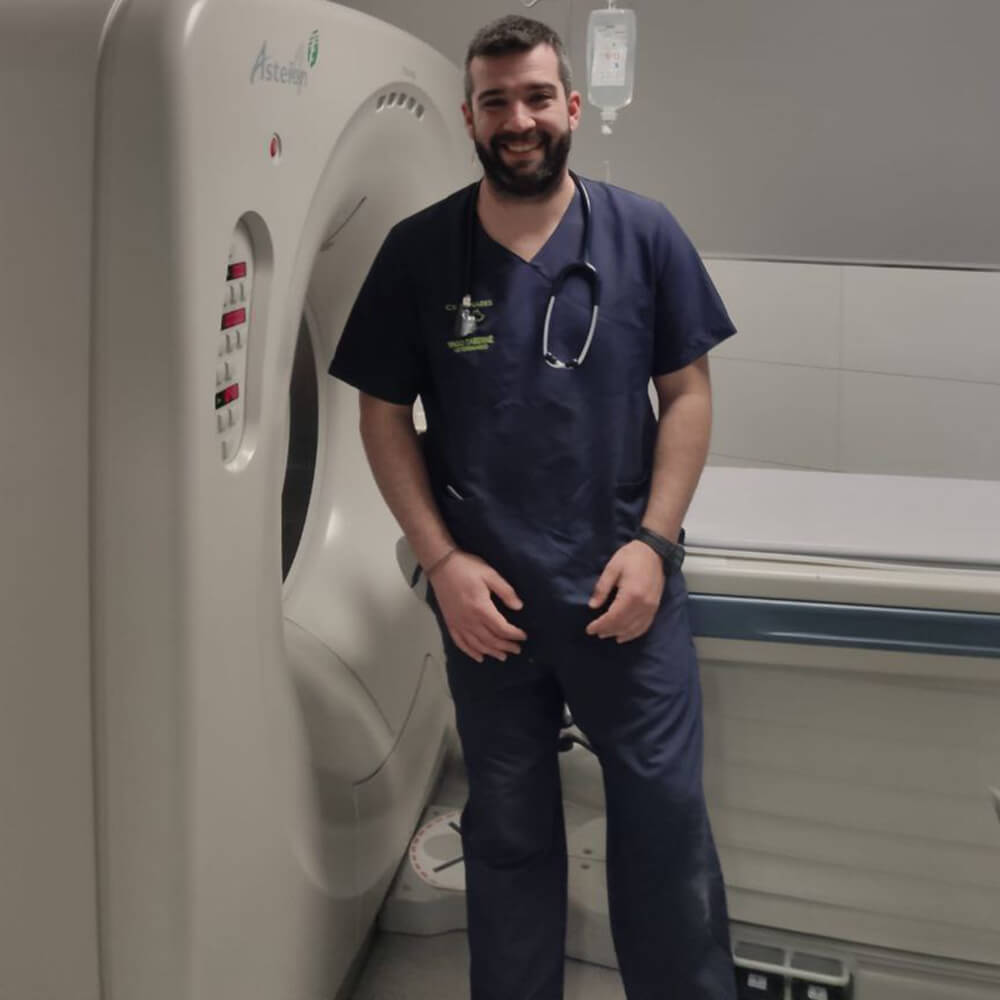
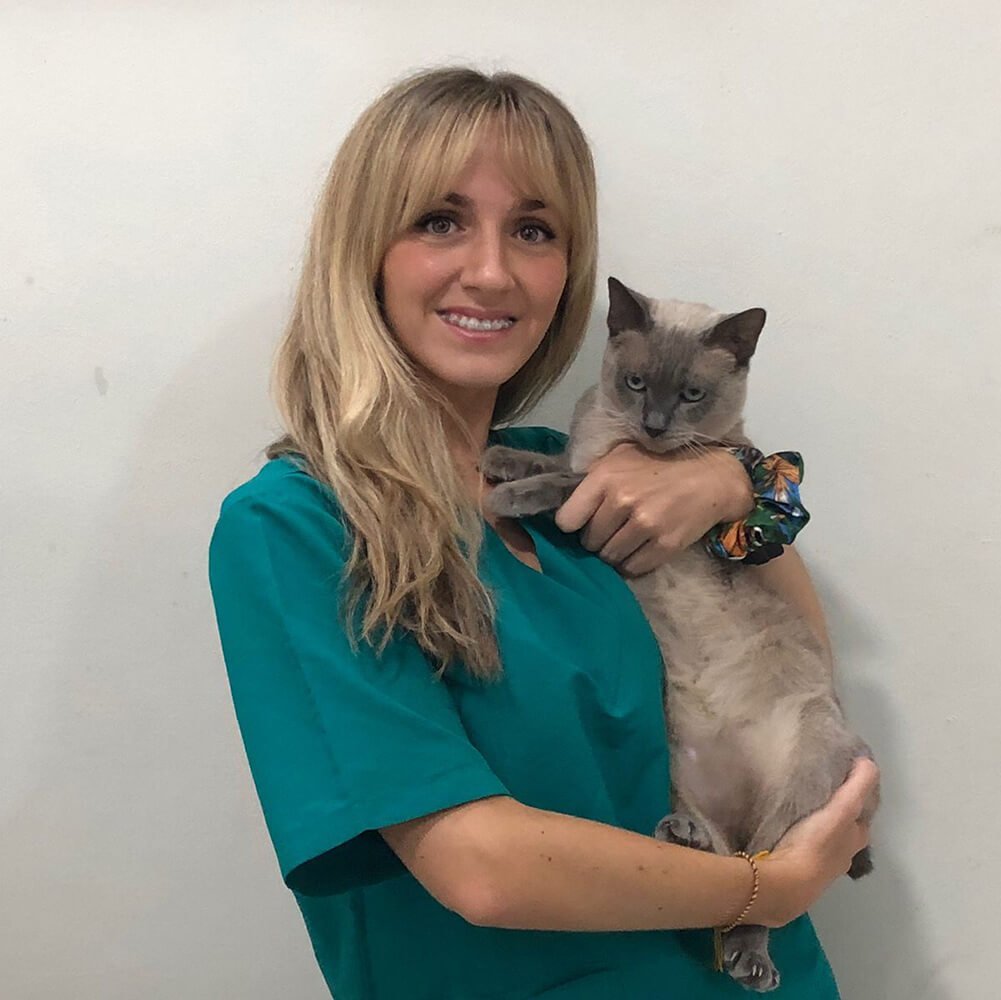
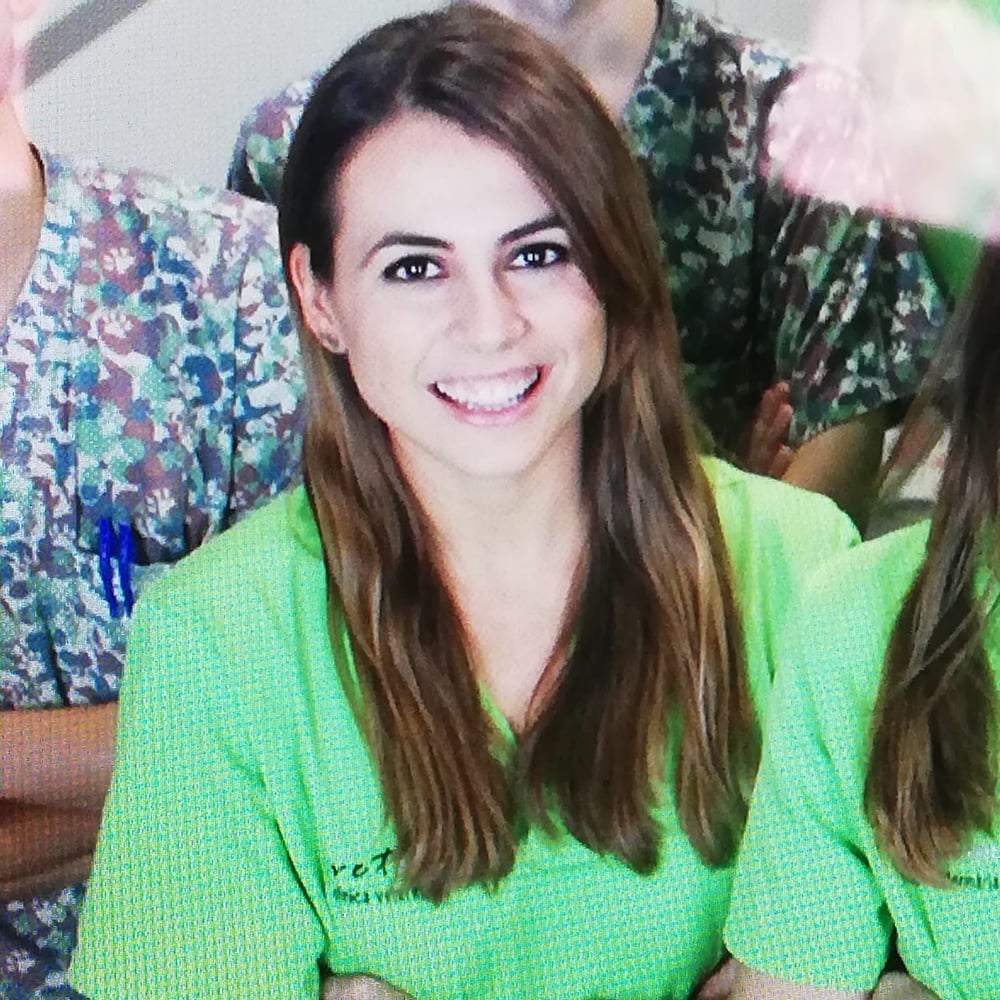
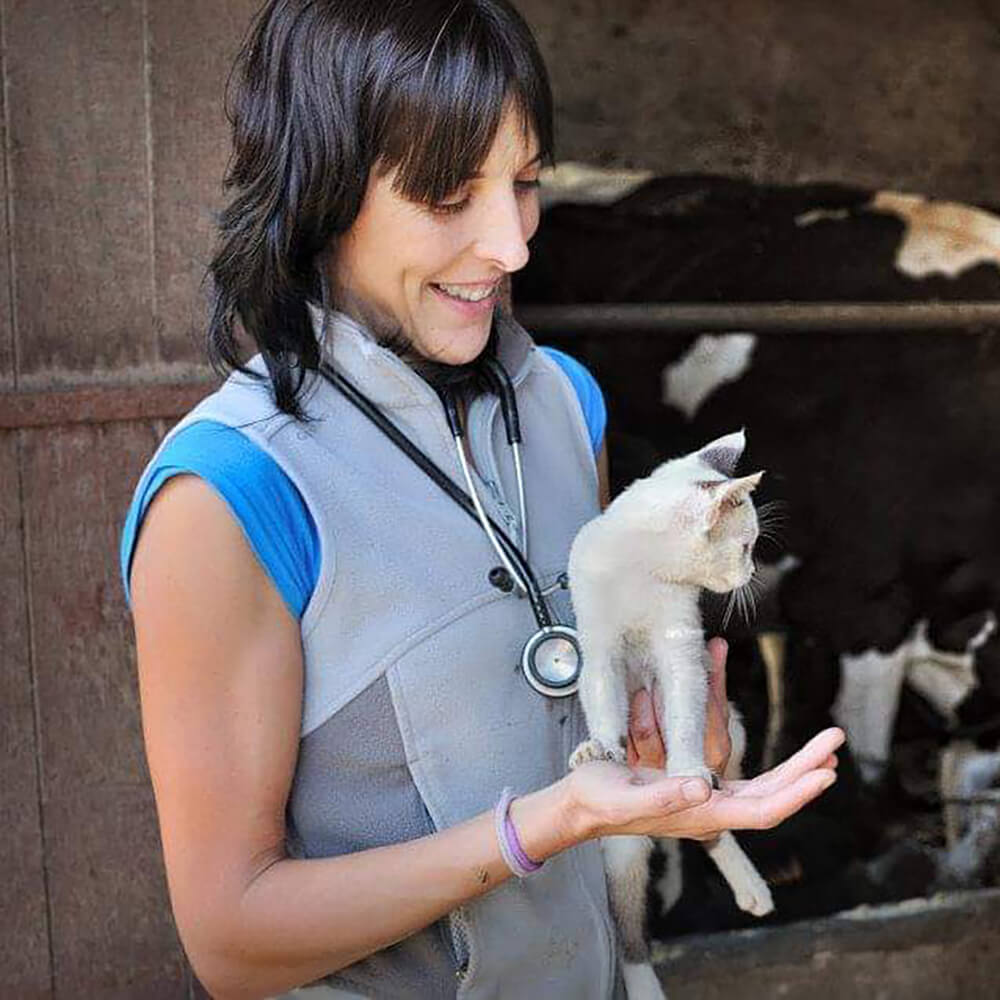
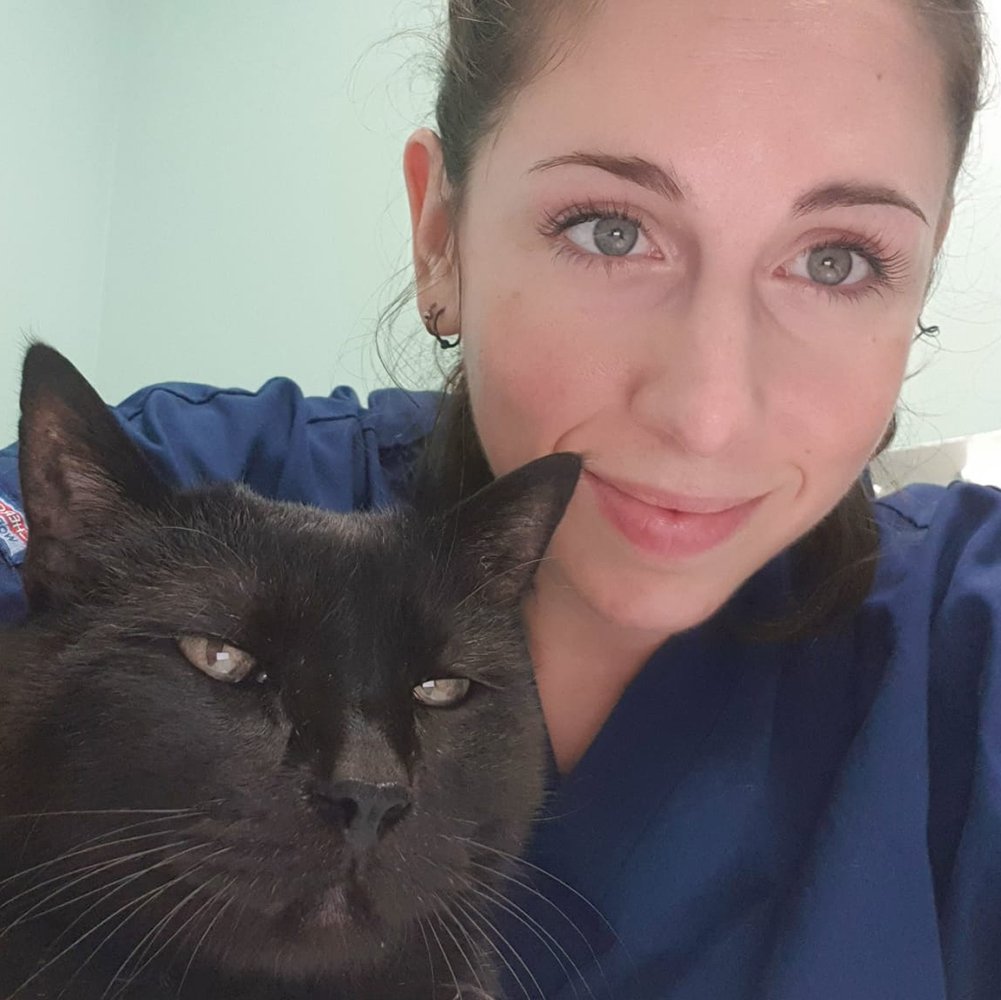
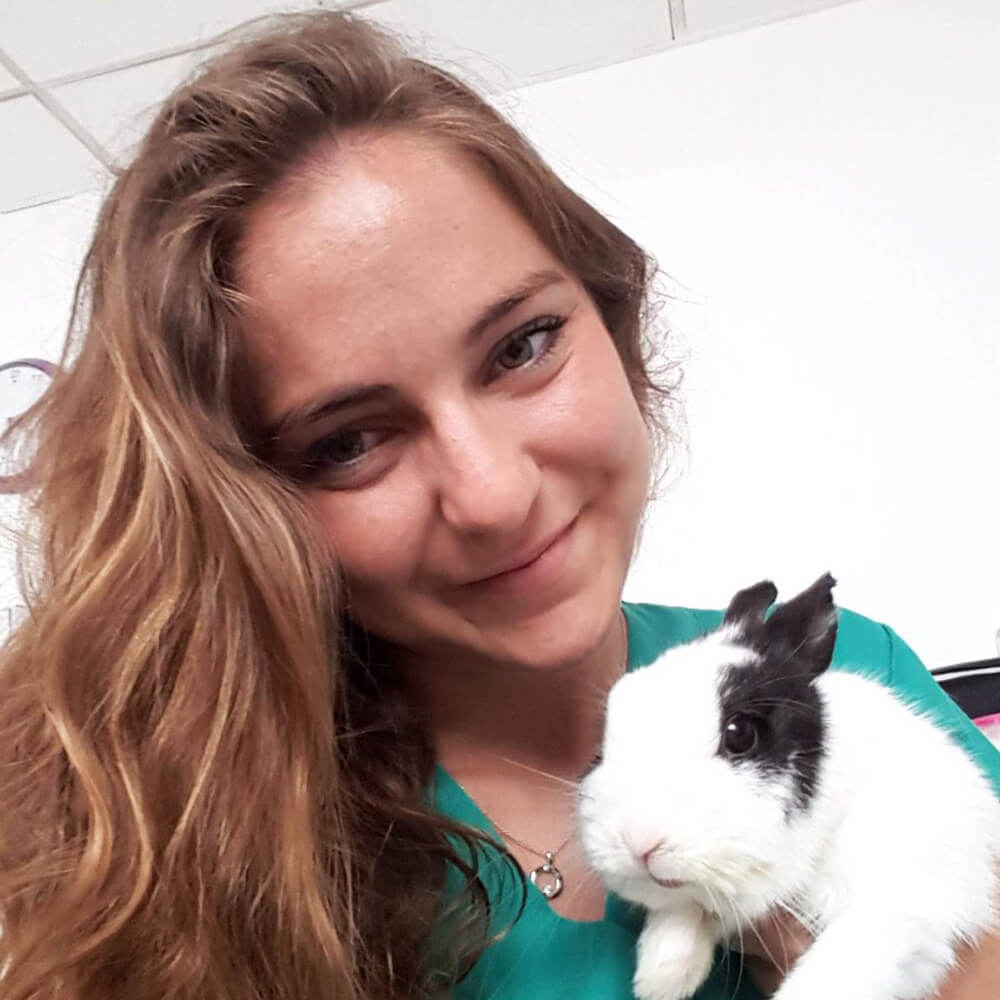
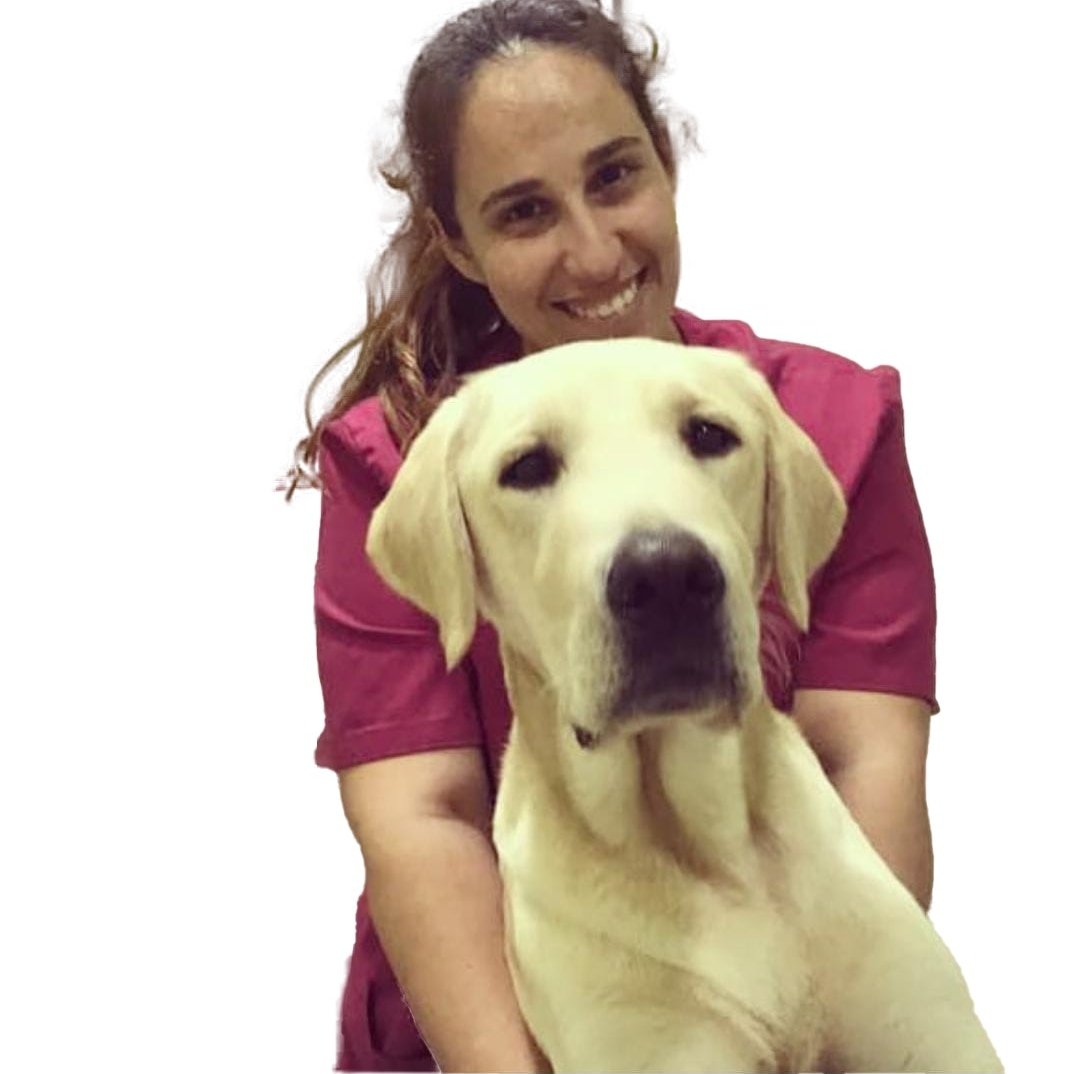
Testimonials from our students







Contact us
If you would like to request information about any of our training services, please fill in the following form or contact us by phone or email
- +44 7862 146532
- [email protected]
- From 8.00am to 17.00pm
Request for information
Contact us
If you would like to request information about any of our training services, please fill in the following form or contact us by phone or email
- +44 7862 146532
- [email protected]
- From 8.00am to 17.00pm




